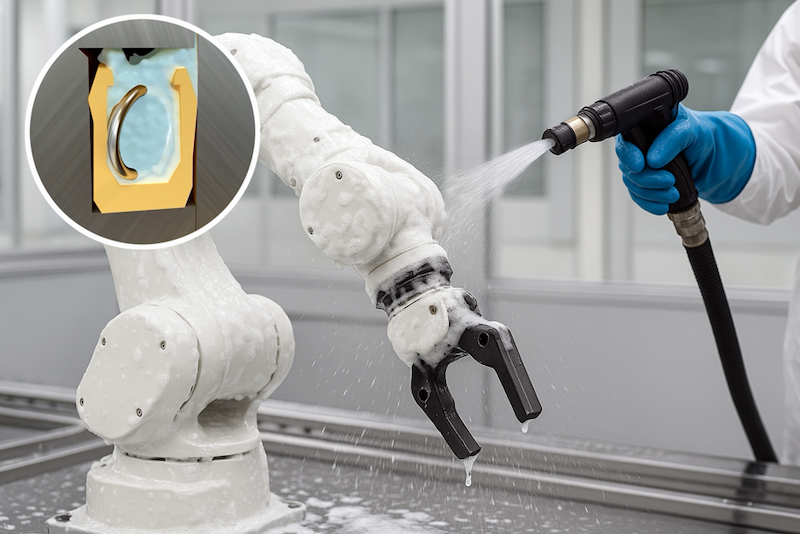Bal Seal Engineering, a manufacturer of custom-engineered sealing solutions, is now providing spring-energized seals that are pre-certified to meet IP67 and IP69 rating requirements common to robotics applications.
This pre-certification eliminates the need for in-house or outsourced seal testing, saving time, reducing costs, and simplifying logistics for robotics designers.
Bal Seal provides standard and custom-developed spring-energized seals pre-certified to IP67 or IP69 requirements, as required. IP67 certification indicates a seal is dust-tight and can be submerged in water up to 1 meter (3.3 feet) for a limited time without damage.
IP69-rated seals are designed for harsh environments, including aggressive washdowns with exposure to fluids, dust, and debris.
Bal Seal spring-energized seals combine low-friction materials, a canted coil spring energizer, and innovative, FDA-compliant jackets in precision-machined profiles. These seals promote consistent operation and improved accuracy over thousands of cycles, while preventing leakage and ingress of fluids.
Miquel Balta, a senior project engineer at Bal Seal, says his company developed the pre-certification process to help robotics engineers spend their time “innovating, instead of validating.”
“By ensuring that the seal meets 100 percent of the requirements for the desired IP rating, we’re eliminating guesswork and taking the burden off the designer,” says Balta. “In an industry where speed is everything, this can help reduce development time while improving overall robot performance.”
Balta adds that typical uses for the seals include robot arms and joints, end effectors, actuators, and motors.
The rating codes for IP67 and IP69 are defined by the International Electrotechnical Commission (IEC) under the standard IEC 60529. Used throughout industry, the ratings essentially grade the resistance of an enclosure against the intrusion of dust or liquids.
Bal Seal Engineering’s seals and springs improve the performance and reliability of robots and robotic systems for medical and industrial environments.
Custom-engineered products help designers of surgical, articulated, SCARA, DELTA, gantry, and other robot types achieve more accurate, consistent movement, conduct more power in less space, and dramatically improve uptime.

